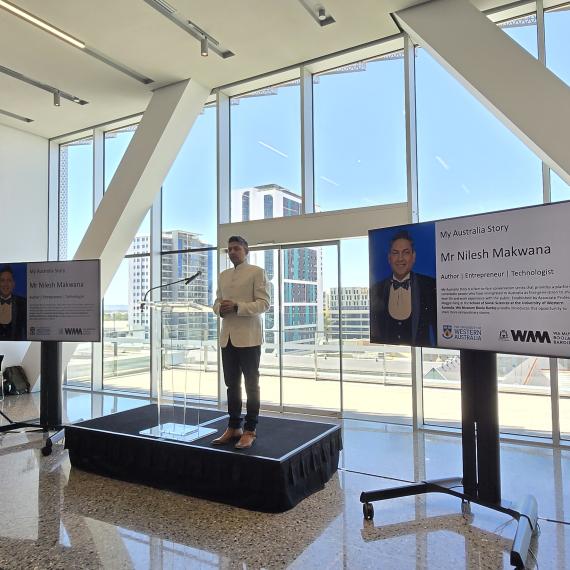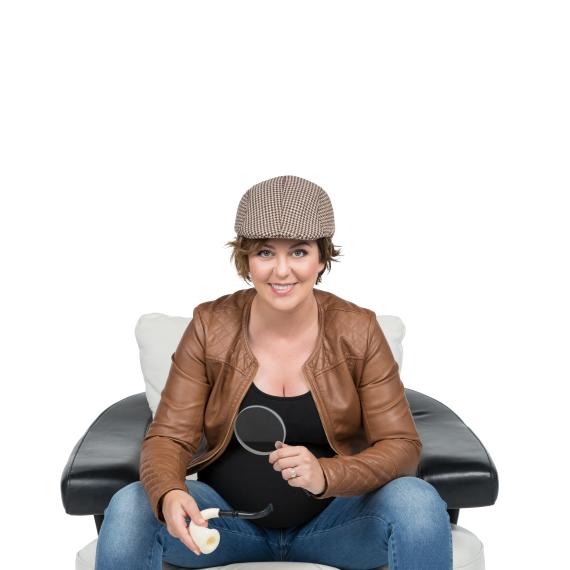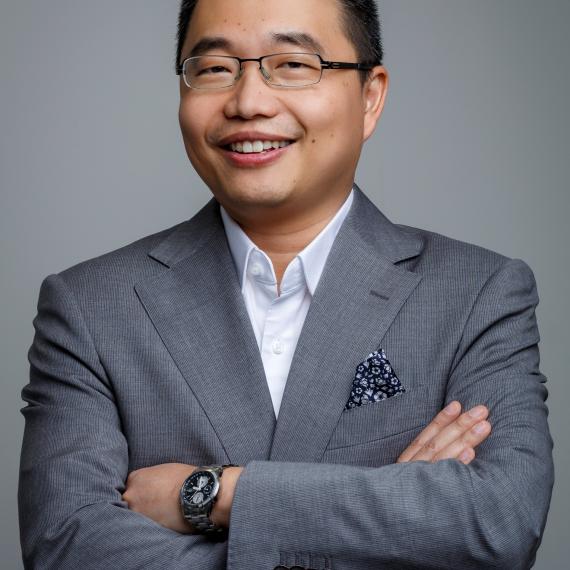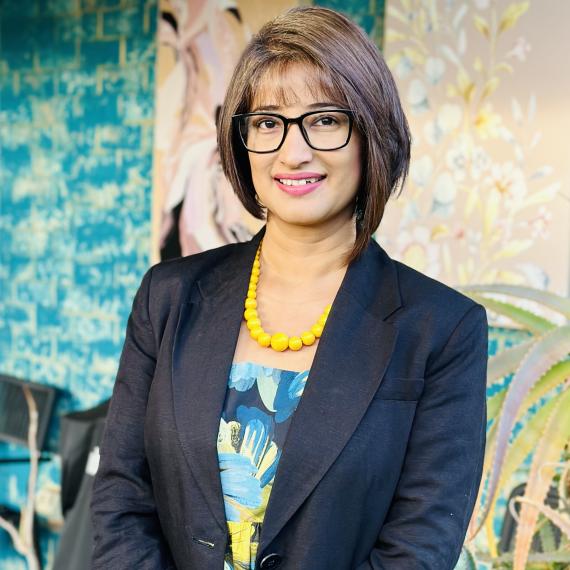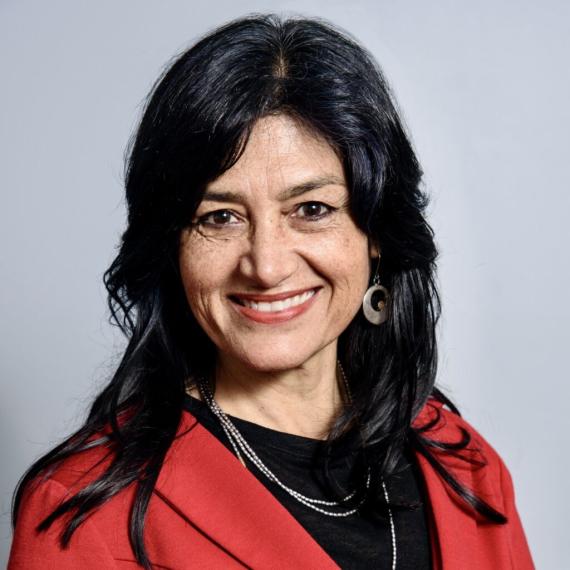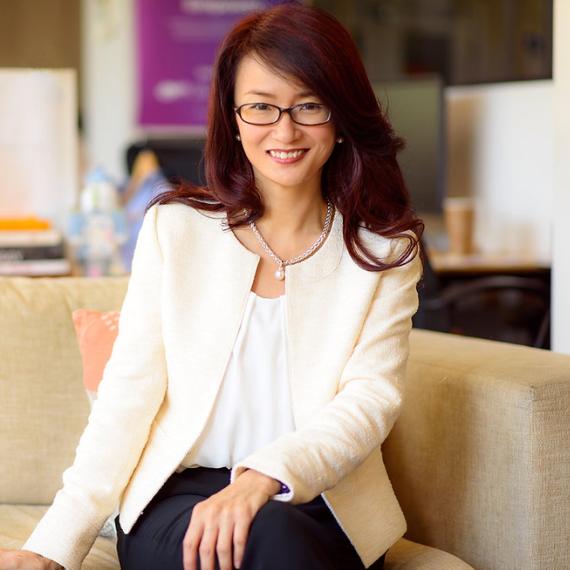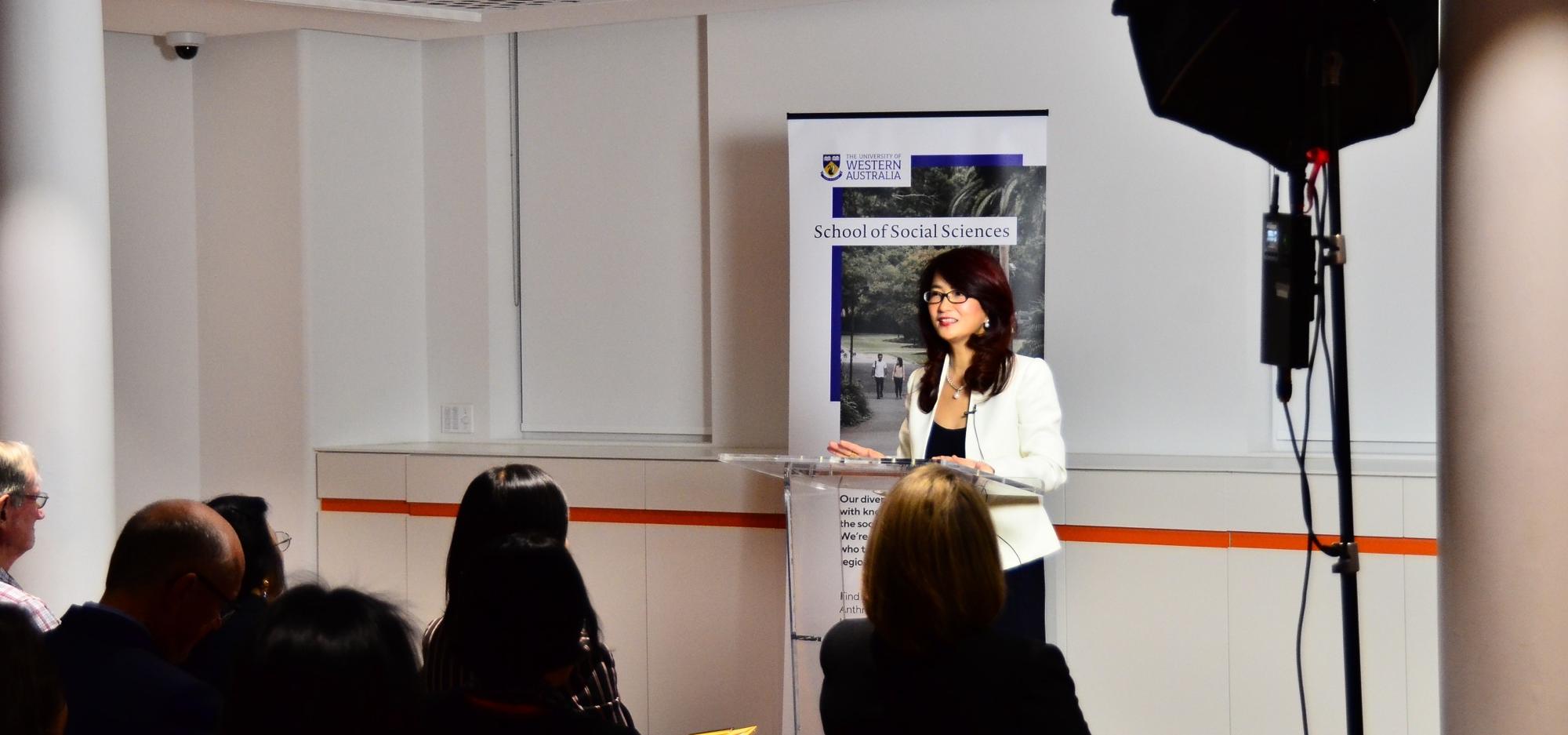
My Australia Story: Dr Sandy Chong
Multicultural Expo 2024
For many people from diverse cultural backgrounds, the challenges of building a successful career in Australia can seem daunting, and perhaps insurmountable.
Is "working hard and being passionate" enough to help you find your dream job in a new country? New life, new path, new beginning… how can you achieve success in your career?
Born in Singapore and migrated to Australia in 1995, Dr Sandy Chong is a businessperson, philanthropist, mentor and educator. Known as a changemaker amongst those she connects with, Sandy has helped individuals, firms and communities transform, grow and elevate.
Recipient of numerous awards and honours, including Asia’s Top Sustainability Woman of the Year Award, Executive of the Year for US Stevie International Business Award and Australia Community Citizen of the Year in 2020. She is passionate about making a difference, believes that human talent is expansive and is driven by making meaningful impact and through lifelong learning.
These 30-minute sessions, chaired by Associate Professor Maggie Jiang from the UWA School of Social Sciences, promise to provide invaluable insights into achieving professional fulfilment in Australia.
-
Episode transcript
[Talks Archive Intro music]
Welcome to the Western Australian Museum Boola Bardip Talks Archive. The museum Boola Bardip hosts a series of thought-provoking talks and conversations tackling big issues, questions and ideas, and is delighted to be able to share these with you through the talks archive. The Talks Archive is recorded on Whadjuk Noongar Boodja. The Western Australian Museum acknowledges and respects the traditional owners of their ancestral lands, waters and skies.
MC: Good afternoon everyone. My name is Maggie John, I'm the Associate Professor in cross-cultural communication at UWA School of Social Sciences. I'm also the founder and chair of ‘My Australia Story’ public talk series. We are very delighted you could join us on Saturday and for this special event. Can I begin by acknowledging the traditional owners of the land on which we meet today and pay my respect to the elders past, present and emerging.
Storytelling plays a crucial role in highlighting the diverse career journeys and contributions of migrants and enriching our understanding of their impact on society. Now through these narratives, we celebrate the resilience and achievements of individuals who have forged their past in a new land. The ‘My Australia Story Initiative’ aims to share the stories of individuals who have chosen Australia as their home and have built success in their careers. And we hope this program serves as a wellspring of inspiration for individuals from all walks of life, transcending the cultural boundaries and we are very proud to be part of the 2024 Multicultural Expo this year. And our second speaker today is Doctor Sandy Chong, a Harvard Alumna and principal of Verity Consulting. Sandy is award winning International Business Executive of the Year and Asia's top Sustainability Woman of the year. The first Asian president of the United Nations Association in WA, Sandy is a strong advocate for peace, social justice and inclusion. She has shared her thought leadership at the Harvard Business School, the United Nations and the Davos Agenda for women. Raised in Singapore and migrated to Perth in the mid-90s, Sandy dedicated herself to elevating those marginalized through the Rhodes Scholarship, ‘Valuing Children Initiatives’ and Special Olympics Australia. Recognized for her contributions, she received the Australia Community Citizen of the year award in 2020 and was recently inducted into the Dubbo Women Hall of Fame. Please welcome Sandy to the stage.
[Audience Applause]
Dr Sandy Chong: Thank you Maggie for the lovely introduction. Hi everyone, it's a pleasure to be here. I'd like to thank my adopted family [laughs] to be here this afternoon. I'd also like to pay my respect to the traditional owners of this land, without them, we wouldn't be enjoying this environment and this beauty for the last 60,000 years. And I would like to pay my respects to the elders past, present and emerging.
I'll start from who I am and where I come from. I was born in Singapore. I grew up in a military family, my father was a military officer. And when we were kids, we travel quite a bit and we live in many different countries. The great thing about that is you're exposed to different cultures, different food, different kind of environment, different tradition. The downside is it's hard to keep friends. So, at a very young age, I learned how to be resilient. I learned how to be flexible, agile and I learned how to observe people before they even speak in order to survive. My father is a man who believes in social justice, he's someone who's really passionate about being a Singaporean. He was born in Malaysia, so does my mum. Both of them grew up in a time where there was a lot of social unrest, and my father saw no future staying in Malaysia as a second-class citizen. So he came to Singapore and I was born in Singapore, both my brother and I, and he was someone who was very passionate about education, he believes that education is a way out of poverty and economic empowerment is really important. He is a huge fan of Mr. Lee Kuan Yew, who is the former Prime Minister of Singapore. In my lifetime, when I was born in the 70s, now you know my age, Singapore was a developing country and then it became a developed country. Nonetheless, the opportunities were very limited for a girl who has big dreams when I was a child. So, my parents went through a divorce, and it became even harder when my father had to travel quite a bit from countries to countries. And finally, at the age of 20 something, 21/22, my father, as a military officer joined some military exercises and partnerships with the Australian government and so he ended up in Queensland, and he basically just airdrop me here and say, ‘Go survive’. I came here with no family, no friends and no religious support, or gathering, or churches, or groups. So it was quite difficult. By then I have already learned 21 years’ worth of English, and I thought it would be very easy. But obviously when I first came here, I didn't understand a word people say. The Aussie accent, the Aussie humour, it was all taken a toll and because you don't understand how people interact and you don't really… half the time you're just trying to figure out what they’re saying. It's very, it was very hard to socialize and not only that you're constantly being treated like a child, and this is what a lot of migrants experience. They are constantly being corrected. They are constantly being taught how to speak. And so that does affect your self-worth and confidence. So that took me a while, but obviously I was very lucky, I came across these two guys called Martin and Malloy, and Roy and HG. I mean they are they are very funny comedians in the 90s and they taught me a lot about Aussie humour, Aussie culture. And I love them, even till today after 20 years, I still have their CD and I play them in my car when I go on a long drive and I thought it was brilliant. So I came here as a student. I finish my degree in a hurry because my father took out a loan to to have me study here and as international students, school fees were very expensive. So what I did was I overload as much as I can to finish degree in two years instead of three, after which I would like to continue my studies and I decided to do honours. And my father told me straight away, he said, ‘If you want to stay in this country, if you want to study, you have to go and get a scholarship. We won't be able to support you’. And so I did. I didn't go out parties, which I really regretted through my uni years. I didn't do a lot of network. I was a total bookworm and nerd, and so I finished my degree in two years. I got my honours with a scholarship, and then I caught the study bug. I love learning. I love studying. I mean, not that I didn't enjoy education in Singapore, but it was very different. The culture in Asia was very much like, you don't question the teacher. You read what you study in the book. You memorize as much as you can. There is only right or wrong answer. There's nothing in between. And so the education system here was very different. I really, really thrive. I was a late bloomer, but I really have to say, like without my teacher, I mean, Mr. Carl Jacob, who's here today, he's my mentor. He was very generous with his time. He was very kind to me when no one cared to bother, you know, give me the time, he was there for me. And I think the first 25 years of my life was very much framed by my father and then I would say the next 25 years was very much framed by this man. You know my thought leadership [laughs]… my thought leadership, my work ethic and my OCD level of perfection[laughs]. There's nothing in between, it has to be done right. So I was very fortunate that way to have Mr. Carl Jacob help me and support me through my whole life. And so I met many generous people many times, people who open doors for me and who also supported me during my formative years as an adult here in Australia. And after I finish my degree, I decided I wanted to stay on and be like my mentor… teach. I never wanted to teach my whole life because I always thought kids and students are a pain in the rear end. So I've always actually wanted to be a military officer, kid you not, I wanted to be like my father. And like every child who aspire to be their parents, I want to do everything that I could to get myself ready for it. So when I was in my teens, I joined a uniform group. I learned how to shoot. I was a parade commander. I did everything I can physically to get myself prepped for it and then when I was 18, I watched a movie and it changed my life. The name of the movie is called Casualties of War, it was a movie by Oliver Stone, and I'm sure you would have seen or heard this movie. Michael J. Fox was in this film. Sean Penn was in this film. It basically showed you the horrors of war. And I remember as a 17-year-old girl, I cried after watching the movie, and I went to my father and I said, ‘I didn't realize wars was so horrible’. I thought I would be an officer and I would protect the country, and this is my aspiration. And then that's when my father said, and by this time, you know, throughout my whole life, between 2 to 18, he has never said join or not join, right? A lot of Asian parents have said to their daughters, ‘No, this is a no go area’, not my dad. He wanted me to figure it out myself and my father told me ‘There is no such thing as a win win in wars. It bring out, it brings out the worst of humanity’, and so I think because of that, it changed the trajectory of my life. I decided to work in the commercial sector, and then I pursue my education here and everything changed. So, after being an academic for a number of years, I had the privilege to teach, to enjoy this environment of learning. And of course in 2010, something happened. First of all, my mentor had a stroke, had a huge health issues and on the same week my mentor had this issue, my father had an accident and he passed away. So what was really interesting was you know, one week before my father passed away, I had a phone call with him, and I was commonly frustrated with him, I was also I was asking my father, ‘Why are you doing this? You're someone's father. You're someone's husband. You know, you have to take care of yourself. You just recover from a stroke. Why are you doing this?’. And I remember he said, ‘Zhāngyīlíng…’, that's my Chinese name, he said ‘You can't just live for yourself. You got to support the community’. And I think those words stayed with me. And I think, plus the fact that I grew up with those values, it kind of changed the way I look at life and change the way I look at how I want to connect with my community. So after my father passed away, I started my business. I was already in the middle of my business. I started my business actually before my father my father passed away. It was at the height of global economic crisis in 2009. I was in academia. I wasn't happy, I decided I wanted to be close to my father. I started my business and I really enjoyed it. But after making a lot of money, I then asked myself, what's next? And so I decided to come back and give back. I was pretty good at fundraising. So I went from UN Women to the UN Association. They recruited me because I could help transform the organization and I have to say, in less than two years, I flip the board from average age of 65 to 35 and now we have a truly multicultural board. We had Brazilian Carolina, we had Argentinian, we had Indian, Singaporean, Malaysian. At one point I even had Dutch. Japanese. So it truly multicultural, truly representative of the United Nation. Next thing I wanted to really share is why do I do the things that I do, very often recently, I get interviewed by people who said, ‘Okay, you’re the chair for the Asian Business Alliance. You're the former president of the United Nation Association, even though you've stepped down, you’re so active, you're doing all these talks around the world, what really drives you?’. And I thought about it, and other than the fact that my father told me to serve the community, and it's something that I'm really passionate about, I think it's also because currently we live in a very unstable world. A world where hate and bigotry is being commercialized and normalized, that is not acceptable. I came to this country and people were kind to me. People were generous. The vast land reflects the vast generosity of the hearts of the people here. And democracy is one thing that is very, very fragile. You have to take care of it. If you don't take care of it, if you don't protect, it will be broken. A lot of people will get hurt. During Covid I saw a lot of people will be marginalized, being treated horribly because of the colour of their skin. And I believe that while we have all these technologies, while we have all these advancement, we really need to reflect carefully who we voted in as our government, the kind of policies that are put out there, and more importantly the rhetoric that we read from our social media and from our media because like peace and tolerance and democracy, they're all very fragile. Very often people say, ‘Why do you want to serve this organization?’, you know just very recently I hear a lot of people come and tell me, ‘You know I really am upset with the United Nation’, and for an organization that I you know, the U.N. association, you know which I advocated for the last ten years, I don't take it personally. I often ask them the question, ‘Why?’, you know people are extremely angry, extremely upset and I say, ‘Why?’ and they said, ‘Oh because of the war in Ukraine, because of the war in Gaza’ and my answer to them is the United Nations is an organization that promote peace and support every country in the world, and we are only as good as our members. As in we're only as good as the countries that make up the United Nation. Just a couple facts to share with you guys, the United Nation receives a budget which is 2% or less than 2% of the global military budget. So very often I tend to ask people this, ‘You have trillions of dollars being spent on military, and then you only have less than X amount of billion dollar spent on promoting peace. Which one do you think will win?’, right? The fact that we are still here and the fact that we still have the life that we have is a miracle. And it's the miracle of the human heart, the humanity that we have in this country, and the hope that we think that despite the lack of funding, we can still do the things that we do. And so my question is, then the next thing I want to talk about is how as a migrant can we contribute to promoting peace? First of all, understand and appreciate the fact that because we're migrants, we come in with very different perspective. We come in with very different kind of experience. We have the hardship. We are already valuable to this country at the very least. We understand how it feels like to be the other. We understand how it feels like to be left behind. We understand how it feels like to corral the community and to serve something bigger than ourselves, sometimes with very little budget or no budget at all. Right? The Filipino communities here and the South American communities here, you know if you see all the amazing things that have been done in this city or in this country, a lot of it is bootstrap supported by migrants. In fact, a third of the businesses here in Australia are owned by migrants, right? We don't just contribute to the economy, job creation, we're also extremely innovative. Think about companies like Apple, Tesla, eBay, Google, Yahoo, or even Pfizer, right? Even Moderna as well. They're all started by migrants in America, in everywhere else in the world. So without migrants, there is no innovation. Without migrants there's no creativity, without migrants there's no thriving economy. We give much more than we take. That's what I believe. And we are all migrants, and we're all Australians and above all, we are humans. More importantly I wanted to leave this final message to everyone that what makes Australia great is because of diversity. Without us, Australia wouldn't be where it is today. I for one, am very proud of my culture. I remember when I was a child, my father would bring me to museums like this and we would watch history. We would read history, and I'm often very curious about how human history has evolved over time despite wars, battles, conflict, we survive and all because we are in this huge melting pot yeah? Especially today when you know air transport is so easy, social media is so accessible. Whatever that's happening in the other country, in other parts of the world, we are fully aware of it, and we can fully connect with it and interact and engage with it. And so there is no excuse to promote the right values through your own connections. And these are the three values that I stand behind. Number one, you take risk. When I say take risk, it means you go out there, you meet new people, you get your hearts broken, and you start all over again because you believe that taking risks, entrusting people in doing the work that you do, will pay off. Number two, form alliances. Find partners. Find your tribe. Find people with similar values to work with so that you feel more connected, and your life is more valuable in in your community. And number three, stand behind your values. I know it sounds like a cliche but think about it, it's like a shoe, right? It doesn't matter how you look, how you sound, how tall, or how short you are. When you stand behind your values, people can’t attack those. They can attack the way you look. They can attack the way you sound, but they cannot attack your values. And it's actually people do die for the values. So I would like people to remember these three things. And of course, I would like everyone to appreciate that without our First Nation people living here protecting the land, there's so much that we can learn from them, we wouldn't be where we are today. And with that, I want to say that I'm very proud to be an Australian, and I hope that I share this, these values and these passions with everyone here. And I look forward to speaking with you later. Thank you.
[Audience applause]
MC: Thank you so much Sandy, for very generously sharing your precious personal journey with us. And I also want to thank you for being such an outstanding leader in fostering inclusion and diversity. Can I ask that we have another round of applause for Sandy? [Audience applause] Thank you. I will now open the floor for questions.
SC: I've known Maggie for a while. I just wanted to say thanks to Maggie. She's such a force [laughs]. Passionate, driven and clever most of all. Does anyone have any questions for me? Yes. Dana [laughs]Go ahead.
Audience 1: [Inaudible question]
Okay. So last year, I believe, when I was speaking at the series, I talked a little bit about my Harvard experience but today I've been told that you know, they want a condensed version[laughs]. So the trajectory is, being Asian, we're not very good at self-promoting. So I remember working at university for a long time. I was really good at my job. But I didn't get to the place that I wanted. I gave up because I didn't know how to deal with politics and most importantly, I didn't know how to deal with conflict. It's just not in our culture. Anyone who's Asian would not have had big time here, yeah? It's just not our, it's just not our nature, not our upbringing. And it's no right or wrong, it's just different. It's just different [Inaudible audience comment] Yeah I know, yeah, exactly. So I think that was one thing. And, you know, I always, you know, I left the university and I left academic life because I thought I didn't… it's not cut out for me because I didn't know how to deal with conflict or politics, so I left. And I think things that you don't learn often have a funny way of coming back and teach you and bite you in the back, and that's what happened ten years on. I was good at my job. I was earning a good pay. I decided to give my time to to a nonprofit organization and as it turns out, it wasn't as easy. There was so much politics in nonprofit organization as well that I was working in. And because I think it's also because people are not paid, and therefore they believe that the passion would drive everything and therefore they're right. And so then your job is to ask yourself, how do you motivate people? How do you empower people to come back week after week, after years to contribute to the organization without getting pay? Number two, you have certain vision. I had certain vision for the organization. For one, I want it to be representative of the United Nation and be 90% predominantly of one specific culture is not diverse and we all know that an organization is not diverse, is not creative, is not going to do well. And that was exactly what happened. So in the very short span of time when I flip the board, we increase our membership by 300%. We increase the funds that we raise by more than 200%. So it's not something that is just another tick in the box, we actually have facts and evidence to show that having a diverse board is actually good for the organization. But unfortunately, at the time as a typical Asian, I just want to follow a leader. I was very happy to serve and after serving a couple of leaders and not really hitting the mark that I want, I decided well the only thing to do is to step up and be a leader yourself. But how do you how do you become a leader? Where do you start? And so at that time, I saw people who are doing less, but know how to play the game are getting better opportunities. And I'm sure any nerd in this room would experience that. It's like, damn it, I really would love to have that, but I don't get it because I don't know how to promote myself. I don't know how to deal with politics, and I don't know how to deal with conflict, or I don't know how to promote myself. So that's what happened. I came across this program by Harvard, and this was ten years after I got my Ph.D., and it was the executive education. And you have to do two small units, one big unit on leadership and I decided to put myself to the task. I was fortunate I got accepted despite the fierce competition. And it changed my life. When I went to Harvard, I learned a couple of things. You have to stand up for your values. For the longest time as Asian, I just didn't want to offend anyone. I sit on the fence, and I try to please everyone. That's not going to work if you want to be a leader, you have to pick a side. And sometimes you have to articulate why you are passionate about something. So forget about pleasing people. Forget about trying to be likable. There will be people who like you, and there’ll be people will hate you. And that's a given if you want to be a leader. And there's another thing I also learn from my predecessors, you only need 51% really, so yeah so you learn about that. So that's one thing I learned, pick a side you know and fight for it. And number two, be comfortable with conflict. So that was the biggest challenge I overcome. Maybe it's very natural for some other culture, but for me it was a big thing. And how to articulate it… your vision, right? Why do you want to do this? Why must you do this? What? Where's the urgency? And how do you motivate? Form a tribe? Encourage people to support you after all. You know after we learn all that, we come back. It just changed my life. I mean I think no one expected to go to Harvard to divorce your wife, move to a different country and quit a job that is multi-million, but it happened to my classmates. So everyone thought they were going to go to this program and become some mean, lean business machine. But it changed the trajectory of their lives and it did for me too. And so yeah, when I came back applying what I've learned, I have to say the the learning curve became much shorter. So I hope that answer your question. You're welcome. Any other questions? Don't be shy. Yes, Melanie.
Audience 2: [Inaudible question]
SC: Yeah, yeah, I reckon, every single time I travel around the world, I mean I often tell people other than Covid, I was stuck here the longest time. Over the last maybe 20 years I've lived in, you know actually stay in a, in one place is six weeks. And then after that, I get really bored and I have to go galloping around the world. But every single time it doesn't matter where I go, whether it's a developed country, a developing country, I come back to Australia and then the first thing I see is this endless, this skyline that goes on for kilometers after kilometers, the vastness of this land. My heart just sigh a big sigh. So I think every single time when I come to this country, I feel like I belong. Because it gives me the space to be myself, to make mistakes, to connect with people that I never would have met if I stayed in Singapore. And of course you know, every country is not perfect, right? There's no such thing as a perfect country, perfect human and everything. But what I do love about this country is that, like a child, we're very willing to learn. We make our mistakes. We're given the opportunity to learn. We pick ourselves up again. We fall down again. We pick ourselves up again. We fall down again. And as an ambassador for the Australia Day Council recently, we had the Australian of the Year ceremony, hosted by the Governor and his wife at the Government House. I've been attending that event every year now, being an ambassador, and I have to say, every single year, there's always a moment where there is not a single dry eye in the room. It doesn't matter if the person the winner is the first Nation person and Asian and African, South American and European and Australian farmer. You know, the the story is so unique and they've given again and again despite personal tragedy to the community, to the cause, to the country, to the people around them and so that gives me a lot of hope, right? It gives me a hope that you know despite the fact that in every country, the military budget is so high in every country, you know the government spend X amount of dollars donating to the UN as a membership fee and then putting money aside, it's around 0.2%. Despite that, we are still living in one of the most peaceful time, I think that is a miracle like I said, a real miracle. The fact that people recognize that we do everything we could to uphold democracy, and we did everything we can to make sure that whatever that happens, in whichever country with dictatorship, with fascism, it doesn't happen this country, right? I know some people are saying, ‘Oh, we live in a very bleak time’. But I also believe that you know, with enough people being aware of where we are and with enough people working really hard to fight for it, it will stop, we’ll stop that from happening. I have, I have trust in that. I mean, a lot of people in this room comes from countries where you don't have the freedom to walk around. You don't have the freedom to speak against your government. You don't have the freedom. Even as a woman to to to be free and to interact and to be mobile. So we're extremely lucky to be in this country and it's because of the people yeah who uphold it. Any other any other questions? Yes, yes, Louisa?
Audience 3: [Inaudible question]
SC: Yes. Absolutely. Good question. Louisa, by the way, is one of the most hardworking, smartest, determined woman I know. Very much like when we first met Louisa took the risk. You took a risk. You were a bit you know, gingerly about whether to connect someone, whether to do something. I think when I, when I first came here the first 20 years of my life, I didn't know the value of networking, getting yourself out there, meeting people because I was horribly shy. I'm actually an introvert, even though I, I do a lot of public speaking, I'm actually an introvert. Once this is done, I just want to go to my meditation, or go home and play my cat, watch Netflix. So I would say it's really important to get yourself out there. You know it can be very intimidating, especially when you don't know someone, especially when language is a barrier. Once you get out there, you meet people, you realize there are a lot of good people out there who wants to help. And number two, the Australia Day Council, the Auspire, the organization has got programs to help emerging leaders in the future to, to learn from mentors and to learn about what are some of the journeys that or some of these migrants have gone through and how do they overcome these challenges? So I mean systemically you have government, our government has dedicated funding to support emerging leaders like that in a regular basis. I mean they've run the program for three years now and I encourage anyone who is, who who wants to be a leader, it doesn't matter how old you are, what ethnicity you come from. If you are interested, I'm happy to share some information with you later on. And then obviously, getting your getting your name out there, articulating what you like, and then people will be attracted to you and come to you based on those values. This is why I said it's so important to not just have values, but also learn how to articulate your values. It could be about animals. It could be about equal opportunity. It could be about education. It could be about, I don't know better water, out of space, yeah, out of space. Melanie is like a space nut. So, so yeah, so, so it could be anything. And then you're going to find the people to come to you, and people would congregate, and they would come together based on the values. And you'd be very surprised, they are not usually one dimensional. They come from all sorts of lives, all walks of life. And also they have many different funny interests and then from there, you realize that, oh, you're not alone. So I would say I encourage young people do that, don't leave it too late. I didn't know anyone when I was in university. I just thought that… put your head down, study hard and get the marks, and you'd be fine. And then when you try to look for a job, it's so difficult because you didn't grow up here. You didn't go to primary school, high school here right? It's a very it's a very close-knit society here in in Western Australia particularly, it's not even six degrees or 12 degrees of separation, is almost like three degrees. So don't behave badly yeah in the public, otherwise the words get spread around. And I also believe that you know, you do what you say. You say what you do. Right in, in this in this society where you don't have that history of going to a primary school, going to a high school, having someone who knows you for 20, 30 years to advocate for you for a job, so you really got to rock up. Half of it is rocking up, right? If you say you're going to go for a meeting, make sure you be there on time, make sure you rock up. And number two, if you say you're going to do something, finish it and deliver it and make sure that is of good standard and then you follow up, say thank you and be grateful. Right? That's my work ethic and so far has worked for me and I don't advocate for everyone, but hopefully you will work for the future generation too. All right. Thank you. Thank you very much, everyone. Thank you [Applause]
MC: Well thank you everyone for these very excellent questions and thank you Sandy, for the inspiring and very inspiring response. Now, I guess we can carry on conversation afterwards. Now, before we close session, can I please quickly thank the WA Museum staff for the excellent support for each episode? And Miranda, Marion and Matt, thank you for the technical support.
And also I want to thank Mr. Alec Coles, who actually joined us quietly for a while sitting there, if you didn't notice him and had to dash to another event. Without Alec support, the CEO of Museum, this probably will not be possible. So thank you very much everyone, for and being here today and feel free to carry on the conversation.
Thank you. Have a wonderful weekend.
[Audience Applause]
Thanks for listening to the Talks Archive brought to you by the Western Australian Museum Boola Bardip. To listen to other episodes, go to visit.museum.wa.gov.au/episodes/conversation where you can hear a range of talks and conversations. The Talks Archive is recorded on Whadjuk Noongar Boodja. The Western Australian Museum acknowledges and respects the traditional owners of their ancestral lands, waters and skies.
More Episodes
Join Mr Nilesh Makwana for a special Multicultural Expo edition of My Australia Story.
Forensic Scientist Associate Professor Paola Magni will share her career journey as the featured guest in the sixth edition of the My Australia Story conversation series.
Join Dr Marcus Tan, an experienced medical doctor, healthcare & technology entrepreneur and company director, in this edition of My Australia Story.
Dr Parwinder Kaur, Director, DNA Zoo, shared her career journey as the featured guest in the fourth instalment of the My Australia Story conversation series.
Career Journeys of First Generation Australians - Meet James Jegasothy, Executive Director, Office of Multicultural Interests
Dr Pilar Kasat, CEO of Regional Arts WA, will share her career journey as the featured guest in the second instalment of My Australia Story conversation series.
The first in a series of My Australia Story conversations, meet Dr. Sandy Chong (BCom Management and Marketing, 1996, PhD Information Systems, 2003).
